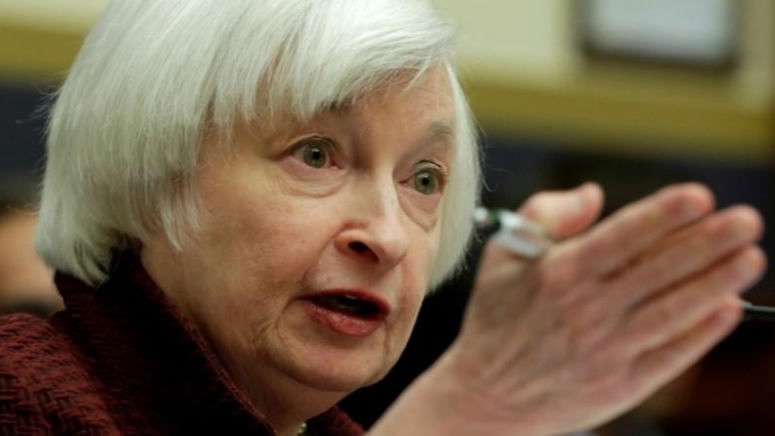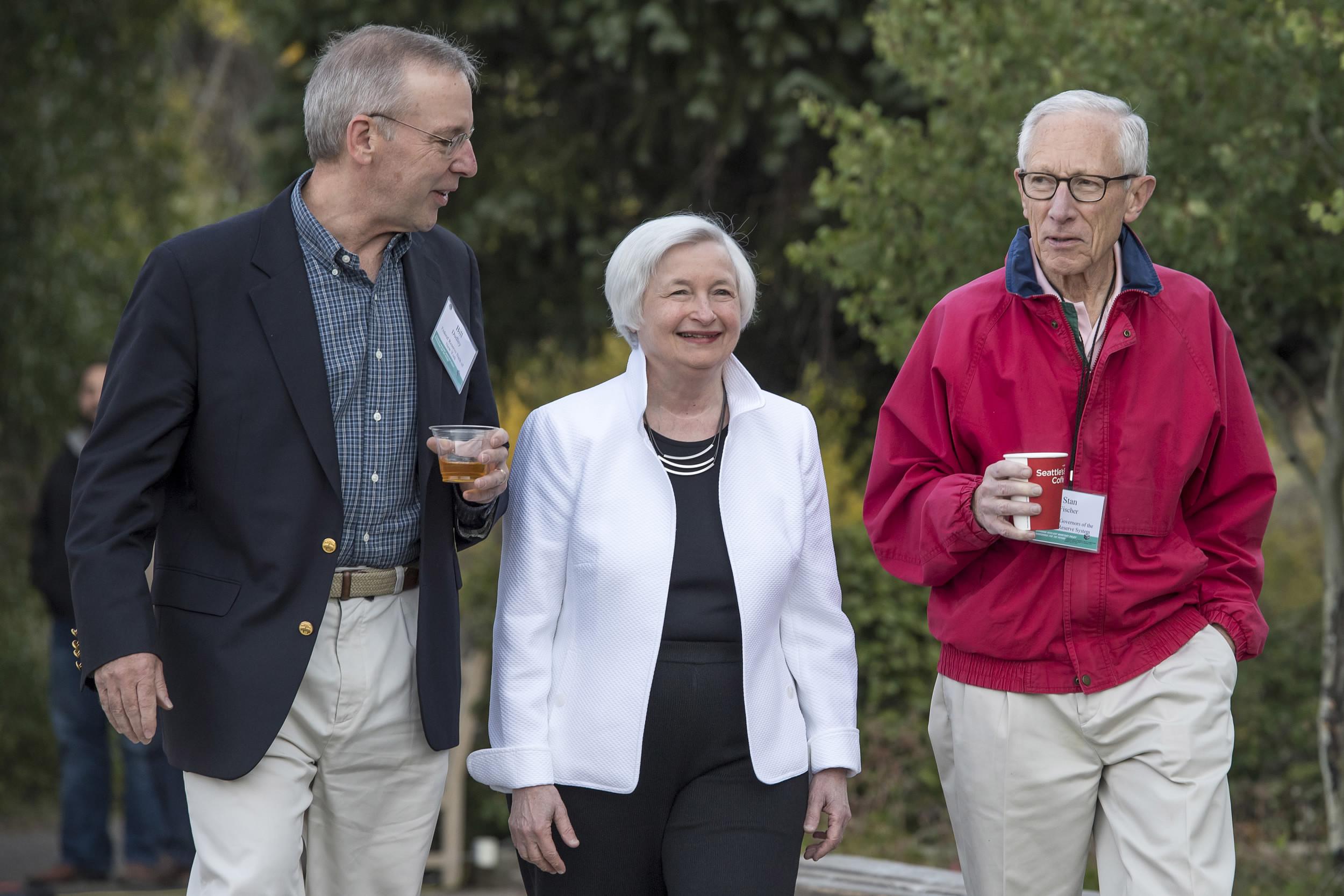
Business
22:44, 19-Aug-2017
Stability concerns focus at Fed ahead of Yellen speech
CGTN

The stock market's steady rise, still low long-term bond yields and a sagging dollar are girding the Fed's intent to raise interest rates again this year despite concerns about weak inflation, according to comments this week from Fed officials and analysts anticipating remarks next week by Chair Janet Yellen.
Minutes of the July Federal Open Market Committee meeting released this week flagged a division among policymakers focused on weak inflation as a reason to stall further rate increases and those who feel still loose financial conditions pose a risk the Fed needs to counter.
Two officials this week, including vice chair William Dudley who has in the past taken a more dovish approach to policymaking, said the fact that financial conditions have recently eased despite Fed rate increases is a reason to keep plans to tighten policy in place.

William Dudley (L), president and chief executive officer of the Federal Reserve Bank of New York, Janet Yellen (C), chair of the US Federal Reserve, and Stanley Fischer (R), vice chairman of the US Federal Reserve, on Friday, August 26, 2016. /VCG Photo
William Dudley (L), president and chief executive officer of the Federal Reserve Bank of New York, Janet Yellen (C), chair of the US Federal Reserve, and Stanley Fischer (R), vice chairman of the US Federal Reserve, on Friday, August 26, 2016. /VCG Photo
When the Fed said Thursday that Yellen next week would use a keynote speech at Jackson Hole to address "financial stability," it was a clue to some that she may agree.
"I would not be surprised to see Chair Yellen outline a similar argument at Jackson Hole – namely, that financial conditions are a piece of the puzzle that currently support maintaining a gradual pace of tightening," analysts from NatWest Markets Strategy wrote in a morning note.
TD Securities analysts said they expect Yellen's comments to be more neutral, but that her speech could yield a "hawkish" surprise if "she elevates concern about financial stability as a factor that would warrant a more aggressive path of rate hikes."
Yellen spoke to the issue in June and did not sound overly concerned. Asked directly about whether the easing of financial conditions might warrant faster rate increases, she noted that the state of financial markets was only one factor in the set of information the Fed used in determining policy.
"We have certainly noticed the stock market is up considerably over the past year," she said. But "we're not targeting financial conditions...We're trying to generate paths for employment and inflation that meet our mandated objectives."
The most recent forecasts by Fed officials showed policymakers expect to raise rates once more this year, likely in December, while in the meantime beginning to reduce the size of the asset holdings accumulated during the economic crisis. Taken together, the steps would add upward pressure on both short-term borrowing costs and the longer-term rates critical to business and household investment decisions.
Recent weak inflation data have led some at the Fed to argue those plans – at least the expected rate increase - need to be put on hold until it is clear the economic recovery remains durable and that the pace of price rises will move towards the Fed's two percent target. They are currently about half a percentage point below that.
The counter: policy remains loose, and the fact that financial conditions have eased even as the Fed has raised rates gives the central bank leeway to tighten policy further without much risk of slowing the economy. Long-term bond rates have been edging lower recently, and coupled with strong corporate earnings that has pushed stocks higher. The fact that the rest of the world economy is doing better, particularly the eurozone, has meant looser financial conditions as well in the form of a cheaper dollar.
In the minutes, the views of "one participant" were singled out noting that a slow but continued tightening of policy, in the current environment, "would likely strike the appropriate balance" among committee members worried about financial excesses and those focused on inflation.
Cleveland Fed President Loretta Mester said in a Reuters interview this week that even with inflation weakening, the Fed should think "preemptively" about how continued loose financial conditions may turn into problems down the road.
"We do have relatively easy financial conditions. That is another reason you want to continue on this gradual retraction of accommodation," through higher short term interest rates and a shrinking balance sheet, she said. "It we don't we could be engendering some imbalances in the financial markets."
11159km
Source(s): Reuters

SITEMAP
Copyright © 2018 CGTN. Beijing ICP prepared NO.16065310-3
Copyright © 2018 CGTN. Beijing ICP prepared NO.16065310-3